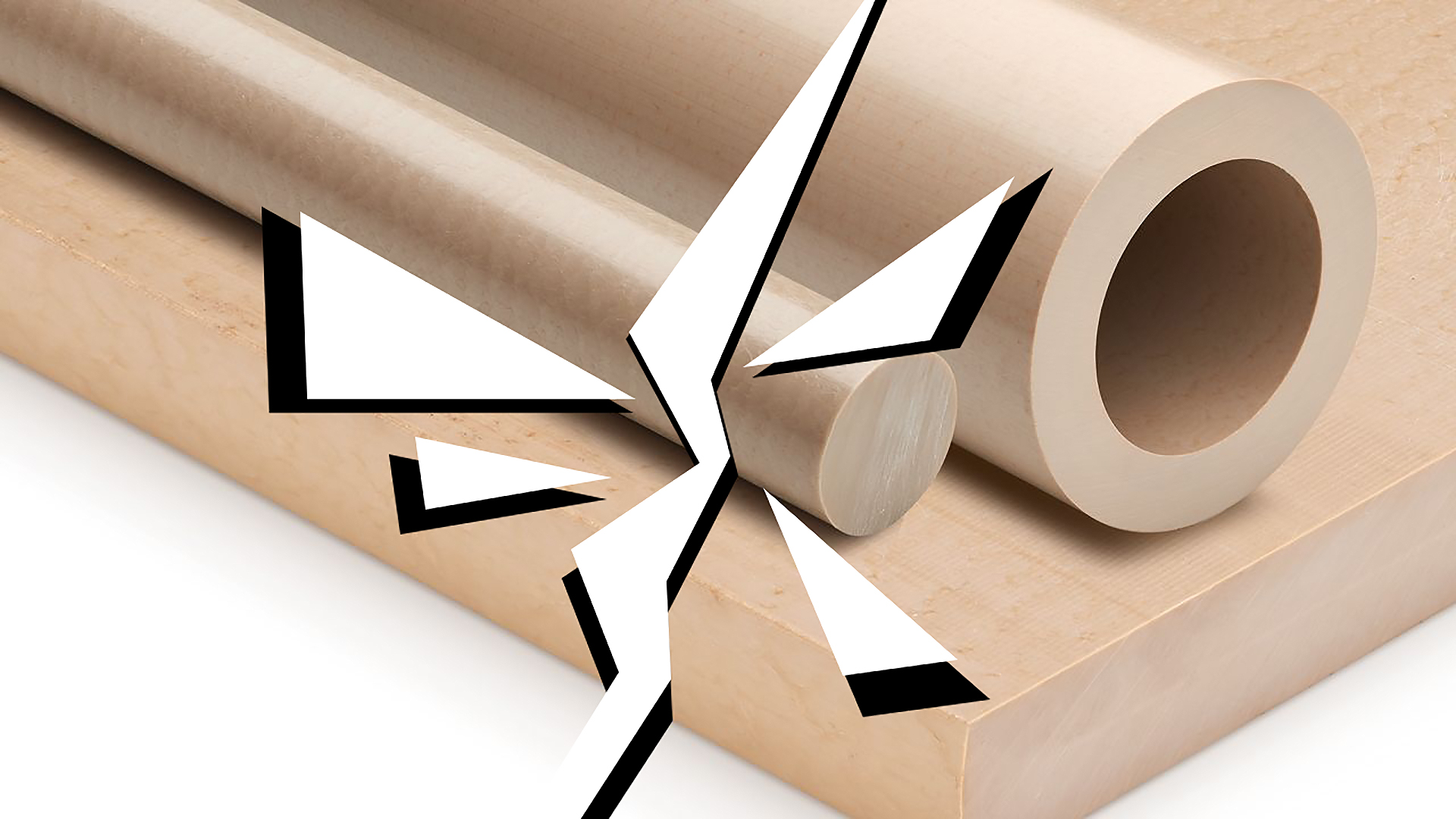Break If You Can
PEEK is one of the most popular high-performance plastic materials currently on the market. But what makes PEEK such a dynamic material?
PEEK material (known as polyetheretherketone in chemistry) is drawn into sheets, rods and hollow rods using PEEK 450G polymer as standard semi-finished products for machining. PEEK is a unique semi-crystalline engineering thermoplastic offering excellent chemical compatibility.
High temperature plastic PEEK polymer parts can also work at temperatures up to 260 ° C (480 ° F) and have a melting point of around 341 ° C (646 ° F). PEEK plastic is generally used in hot water or steam environments and retains its physical properties such as stretch and tensile strength to a great extent. Polyetheretherketone is generally regarded as one of the high-price engineering thermoplastics, but experienced users have recognized the added value of PEEK materials by allowing them to produce parts that last longer in lighter, more robust and demanding environments.
The Intensive Areas where PEEK Plastic is used are as follows:
1) Aviation:
PEEK is ideal for outer world aviation, ie space conditions, where the material comes into contact with atmospheric particles and low temperatures. The material is also preferred because it is light, chemically inert and relatively inexpensive.
2) Filter Manufacturing:
Biodiesel fuel filters: Biodiesel has been recognized as an alternative energy channel worldwide due to its enormous benefits. However, since biodiesel was prepared from PA, it disrupted standard filters. PEEK is not affected by biodiesel and therefore provides good sustainability for a long time. Membrane spacer battery: A composite material used to separate different layers in a battery. PEEK is 50 microns thick, 195 microns thinner than conventionally used polypropylene. PEEK is considered a high quality material for producing modern products due to its good resistance to acid and chemicals as well as controlled porosity.
3) Health care:
Implant material; PEEK is very flexible, durable and strong in nature. It does not harm the body or skin, so it is useful for repairing soft tissues and vaccination pens.
Dialysis pump filter: In dialysis, malfunction of the pumping mechanism causes serious problems and therefore requires a good pump that is not affected by heat or cold. Consistent with this, PEEK is a suitable choice with its high temperature resistance and low moisture absorption.
4) Food and drink:
Food drying: Processes requiring dehydration for the production of powders, pastes and granules require temperatures of up to 150 ° C. Even though PET fabrics are already being used, Polyetheretherketone is a very good option when high temperatures up to 190 ° C are required in addition to the same properties and shrinkage levels as PET.
Feed drying: At the end of production, some animal foods are dried on a belt reaching a temperature of 150 ° C. PEEK is a frequently used material in this application due to its high temperature resistance.
5) Chemical and Pharmaceutical:
Pharmaceutical products including centrifuges and disc filters: Medical equipment is cleaned at temperatures up to 150 ° C. Many plastics such as PA, PET, E-CTFE, PVDF cannot maintain such a high temperature. PEEK is extremely suitable for the filter, as it remains the same even at high temperatures and provides good flexibility. It is also less susceptible to contamination and is available at an affordable price.
Vacuum belt filters: Vacuum belt filtration is a process in which chemicals are diluted and dried. Drying is carried out by passing the chemicals through a filter on the belt. Different chemical manufacturers like to use PEEK to produce polyester, which is less durable than the filter itself.



